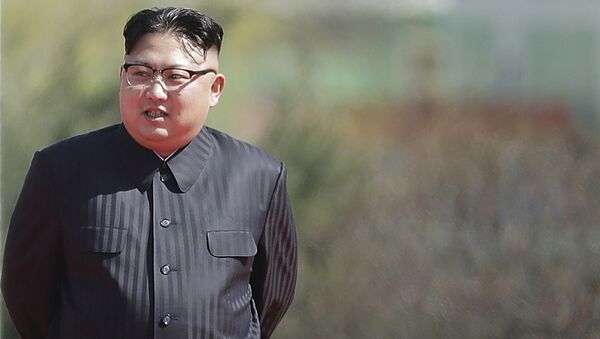Radio Sputnik’s Loud and Clear speaks with Juyeon Rhee of the Solidarity Committee for Democracy and Peace in Korea about the ban and whether it will succeed in curbing the North’s weapons development, or only stoke the already white-hot tensions between Washington and Pyongyang.
Juyeon called the travel ban "a restriction aiming not at the citizens, but sending a message to the world that they are considering some kind of a military action … further limiting their own options for a peaceful resolution, [and instead] heading down the road of military tension and conflict."
Washington has said that the ban is meant to protect US citizens from the "serious risk of arrest and long-term detention" in North Korea. The ban comes in the wake of the death of Otto Warmbier, an American university student who was detained in January 2016 during a trip to DPRK and died in June 2017 after being released from prison.
A North Korean Foreign Ministry spokesman responded that "our doors will always be open for Americans who visit our country out of goodwill and wish to see our reality."
Juyeon cited a Washington Post report that said there were about 100 to 200 US citizens in North Korea at any given moment, and that 25 humanitarian groups had staff there. Less than a handful of Americans have actually been detained.
The activist also noted the disappointment Korean progressives feel in the South Korean President Moon Jae-in, who, though more liberal than ousted President Park Geun-hye, still appears to be acquiescing to the will of the US military, despite his early protest of the Terminal High Altitude Area Defense (THAAD) system deployed in Seongju county.
"The Moon Jae-in administration has set out to enhance the military alliance with the US, but also saying they would like to pursue diplomacy with North Korea," she explained. "This dual track is not going to work. If you’re still threatening North Korea, and then on the other hand offering to dialogue, North Korea is not stupid in thinking that you are not sincere in their effort for the diplomacy and peace negotiations."
As US Secretary of State Rex Tillerson heads to Manila for the Association of Southeast Asian Nations (ASEAN) conference, acting Assistant Secretary of State for East Asia Susan Thornton gave a statement last week saying, "What we are trying to do is galvanize this pressure and isolate North Korea so it can see what the opportunity cost is over developing these weapons programs."
"China had taken significant steps, frankly unprecedented steps to increase pressure on its neighbor North Korea, but it could do a lot more to step up enforcement of existing sanctions and impose more."
Juyeon pointed out that former US President George W. Bush declared North Korea part of the “Axis of Evil” in 2002. After 15 years, she asks, "What have we accomplished by increasing the military sanctions? I do not think we have achieved any resolution."
"Increasing the military pressure or the economic pressure and hoping that North Korea will be more and more isolated … is going to only increase North Korea’s provocative military enhancement, which will not be ending peacefully and this is only going to deteriorate the circumstances," she suggested.




